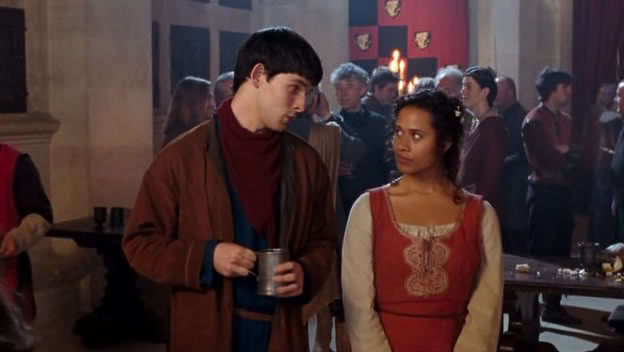 |
| CNN opening old wounds with Race and Rage Documentary |
Think about this: CNN has aired multiple Black in America programs, Katrina Five Years Later, Almighty Debt: a Black in America Special, and will now air a documentary on a habitual criminal who failed to cooperate with the police and was properly beaten for his transgression.
All of these documentaries lay the blame for Black failure, poor credit scores, and high rates of Black incarceration in every direction but the primary one: Black people.
CNN absolves Black people from any failure and instead blames white people for the miserable plight of Blacks nationwide. What can one expect to learn from 'Race and Rage'?:
Race and Rage’ – CNN’s Don Lemon Talks with Rodney King 20 Years LaterDocumentary debuts Friday, March 4, 8:00pm ET & PT
In the early morning hours of March 3, 1991, construction worker Rodney King and two companions were pulled over after a high-speed chase in Los Angeles. King’s friends were arrested without incident, but the violent confrontation between King and the officers on the scene made national headlines, and ignited racial tensions in the city – and the nation.
CNN anchor Don Lemon retraces the events of that morning, and the riots that divided Los Angeles and the nation in Race and Rage – The Beating of Rodney King, debuts Friday, March 4 at 8:00p.m. ET and PT on CNN/U.S. It replays on Saturday, March 5 at 8:00p.m. ET and PT.
King was tasered, kicked, and beaten by officers on the scene. He received more than 50 baton blows that crushed bones, shattered teeth, injured his kidneys, and fractured his skull.
Lemon asked him what thoughts he had during the beating, “Stay alive – I knew I had to survive this,” King tells him in an exclusive interview.
The altercation awakened George Holliday who grabbed his home video camera and filmed the incident. The video became a national sensation and the cornerstone of an excessive force trial against the Los Angeles Police Department.
King became a visual symbol of police brutality, but the officers were acquitted in the original trial. News of the acquittal ignited anger that erupted into riots in Los Angeles that lasted for days. Over 50 people were killed, businesses were looted and burned, and even cities as far away as Atlanta reported violence inspired by the news of the verdict.
Lemon and King revisit the scene of the beating together, retracing the events that altered his life, and the riots that followed. Lemon also speaks with Bobby Green, who famously rescued white truck driver Reginald Denny, who was assailed by a mob at a city intersection during the riots.
A digital feature deconstructs the timeline of the events of March 3, 1991, and includes a special report on King’s life today. The Holliday video became a powerful example of “citizen journalism” and is examined in the context of other watershed historical moments witnessed and captured by citizens across the country and around the world. These and video excerpts from the documentary will be reported on www.cnn.com.
In city after city across a land ruled by the governing philosophy of Black Run America (BRA), anytime a Black person is arrested by police the primary reasoning is because that arresting officer was a racist. Anytime a Black person is shot by a police officer, the only motive is racism (self-defense is never viable reasoning) and a lawsuit is inevitably pending.
I have gone on record and stated that within six months a massive Black riot in a major American city will occur (and no, this time Black people won't intimidate that city's newspaper to not report what transpires) and will be largely coordinated using social networking. It seems someone agrees with me:
Nation of Islam leader Minister Louis Farrakhan predicted on Sunday that America faces imminent uprisings that mirror those in the Middle East.
“What you are looking at in Tunisia, in Egypt … Libya, in Bahrain … what you see happening there … you’d better prepare because it will be coming to your door,” Farrakhan said in a booming voice, thousands of followers cheering in his wake.
Farrakhan also called on President Barack Obama to allow protesters to march, urging the president not to attack innocent people when they do.
It could be a lot sooner, with CNN airing a documentary that will undoubtedly create anger and sow discord among a community that rarely convicts Black criminals when they appear on jury's (which is why don't, because Black people believe the justice system is racist and side with Black criminals on a regular basis).
Remember the reactions to OJ Simpson's verdict.
Race and Rage. What an apt name for a documentary that will only augment rage that the Black race feels toward a nation that bends over backwards to placate their every need. And people talk about "white privilege" with a straight face.
It's time we start talking about "Black Privilege" -- an idea that fuels the notion of Black Run America.
Black people are never at fault for their actions with the motivation for their ruinous decisions easily and properly blamed on racism (remember Omar Thornton). That is the ultimate "Black Privilege" in BRA: to never be at fault and always have the excuse of lingering racism to explain their actions.
We'll ask this question again: Why is CNN airing Race and Rage now? What do they hope to gain? What are they trying to start?
We at Stuff Black People Don't Like call on CNN not to air Race and Rage on March 4. Are the producers intentionally trying to incite a riot?


![[SUPERHERO]](http://sg.wsj.net/public/resources/images/HC-GP635_Jones_BV_20110217180925.gif) Phoenix Jones
Phoenix Jones 






